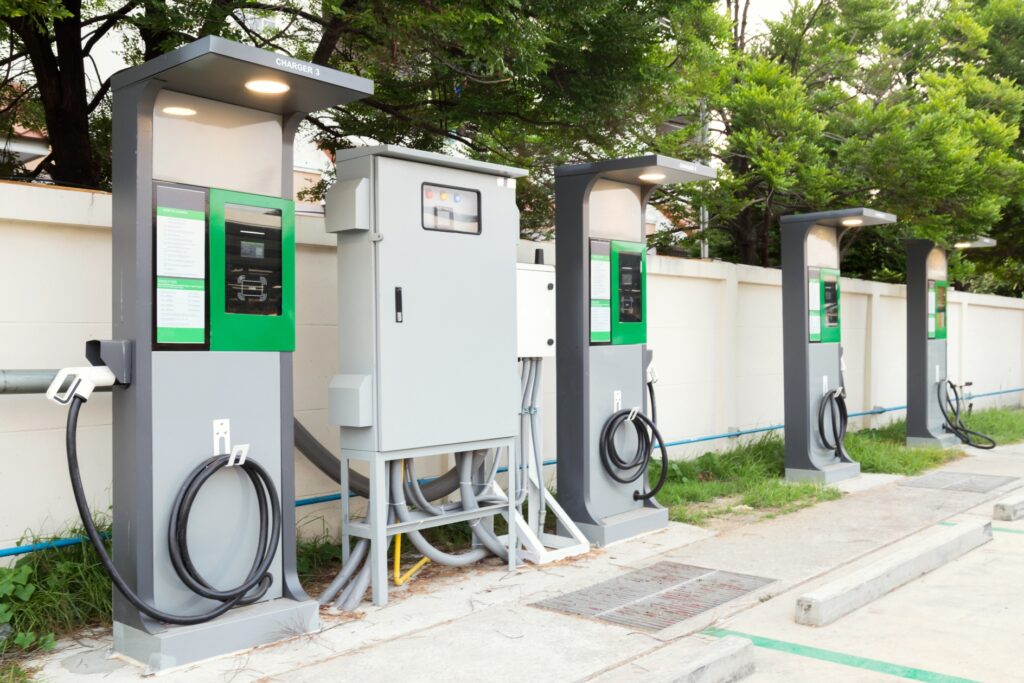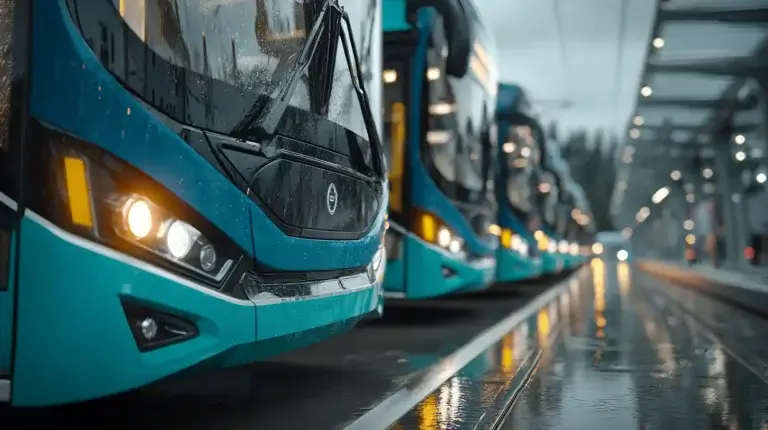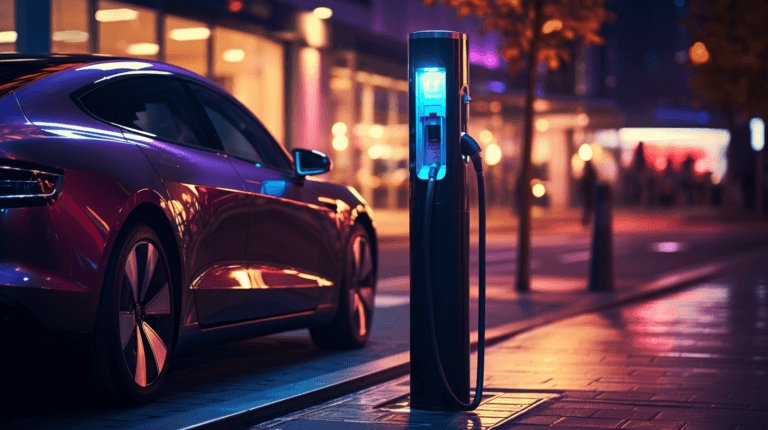Smart and IoT technology go hand in hand with electric vehicles (EVs). Of course, it is possible to charge an electric vehicle without smart technology, but with smart connectivity and communication come further efficiencies. These truly enable the future potential of these more environmentally friendly modes of transit.
Smart cities and towns are among the most predicted and heralded technological advances for society. These will be habitats where IoT and connected devices communicate directly and constantly with city infrastructure. Where services are delivered seamlessly with little human contact. Where energy grids are constantly and efficiently managed, and where traffic can even be managed by communication between smart vehicles and smart infrastructure.
Analysts at IDC anticipate that by 2023, cities and governments will be spending $196 billion (£148 billion) on smart development including surveillance, public transportation and lighting. They expect vehicle-to-infrastructure (V2I) technology, though with challenges, will take advantage of 5G network development and be an integral part of smart cities. Therefore, smart technology will benefit individual electric car owners and fleet managers. In addition, they will pave the way forward for all elements of vehicle development and management.
So, what is smart charging?
Currently, charging speed and availability are among the largest barriers to EV adoption.
Governments and fleet managers have to catch up with the accelerating pace of EV development and provide much-needed infrastructure. This is so that EV usage and opportunity does not stall due to difficulties in utilisation.
Smart charging is more than simply plugging an EV into a socket and waiting for it to fully charge. It’s about managing local charging to ensure parked vehicles receive optimum charge at the most efficient cost. Smart charging is using load balancing to charge multiple vehicles, effectively, from a single station.
Smart charging is also about communication between charging points and the electrical grid to take advantage of off-peak usage times and renewable energy sources. The main driver for it however, is that it can remove the need for substation upgrades by limiting the power requirements at a local grid level.
How can smart charging enable the future of EVs and its infrastructure?
The UK Government’s target of ending the sale of ICE vehicles in 2030 is essential for the UK to become carbon neutral by 2050. Charging infrastructure must keep up with this demand. However, fuelling these vehicles will become a stress on electricity grids too unless the process is effectively managed.
Smart technology will allow charging stations to communicate with the grid, so that power managers can monitor flows of energy in real time and react faster to demand growth and, indeed, issues. Elements of smart technology, such as load balancing and the utilisation of AI, can both predict when and how much EVs need to charge and manage the physical charging effectively.

The International Renewable Energy Agency (IRENA) actually believes that with 95% of vehicle’s time spent parked, EVs could become the “battery banks of the future,” and work to stabilise electricity grids. This must be facilitated by smart charging technology. IRENA believes more than 1 billion EVs could be on the world’s roads by 2050 and that smart charging could save billions in “grid investments.”
Dolf Gielen, Director of IRENA’s Innovation and Technology Centre says:
“EVs at scale can create vast electricity storage capacity, but if everyone simultaneously charges their cars in the morning or evening, electricity networks can become stressed. The timing of charging is therefore critical. ‘Smart charging’, which both charges vehicles and supports the grid, unlocks a virtuous circle in which renewable energy makes transport cleaner and EVs support larger shares of renewables.”
IRENA, in its “Innovation Outlook: smart charging for electric vehicles,” report, analyses smart charging system approaches – from basic ones that allow consumers to charge off-peak, right through to advanced approaches providing near real-time energy balancing as well as other services. The agency says that, “smart charging for EVs minimises their load impact and unlocks the flexibility to use more solar and wind power.” In this way, the environmental positive effects of EVs are magnified with additional benefits for using and maximising renewable energy sources.
At Versinetic, we know that one of the challenges to EV adoption is providing the right volume of effective charging infrastructure in order to meet demand. EV charging development needs government support but with initiatives and technology development such as smart connectivity and load balancing. Charging infrastructure can be efficient, easy to use and manage, and even create a whole new service industry.
Our engineers, through parent company ByteSnap Design, have developed smart charging EV technology. We worked with partners such as Aston University and other collaborators to build a communication and control platform for vehicle-to-grid (V2G) and vehicle-to-building (V2B) systems – the first fully integrated system of its kind in the UK.
V2G technology could see electric vehicles returning power to the grid when stationary. This provides energy grid resilience and can also reward EV owners and drivers. Renewable energy flows, such as solar and wind power, can be variable sometimes – providing too much energy at once and other times too little. EVs can thus serve as battery banks, holding surplus energy but returning it when necessary and when parked.
ByteSnap is also working on ancillary initiatives such as contactless EV charging payment. Peering further in the future, smart technology, the IoT, and AI, could deliver fully automated charging in our smart habitats, workplaces, towns and cities.
How can Versinetic help you today?
From start-ups to blue chips, Versinetic’s embedded systems software developers are enabling companies to stay a step ahead by providing them with bespoke solutions. Maintain your competitive edge – contact us today and let your business be among them!



